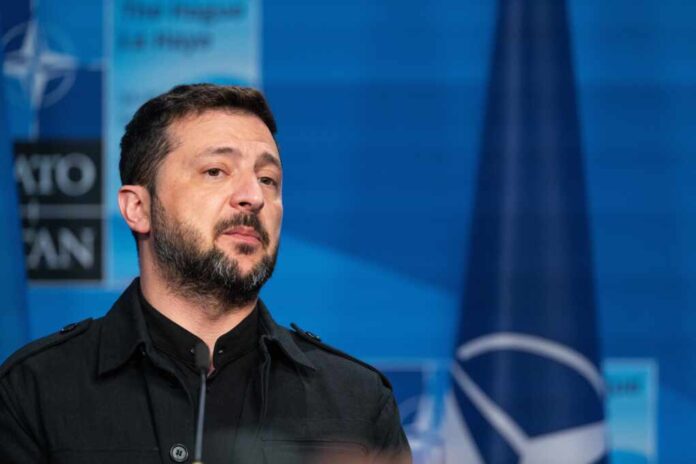
Ukraine’s blunt rejection of China as a postwar security guarantor has triggered fierce backlash from Beijing.
Story Highlights
- Ukrainian President Zelensky publicly refused China’s role as a security guarantor, citing its aid to Russia and lack of support for Ukraine.
- China responded with outrage, insisting on its “objective” position and constructive role in the Ukraine crisis.
- Russia pushed for a postwar security framework involving all UN Security Council members, including China, to maintain its influence.
- The episode exposes deep mistrust of communist regimes and raises concerns about foreign powers shaping Europe’s security landscape.
Zelensky Rejects Communist China’s Role in Ukraine’s Security
On August 22, 2025, Ukrainian President Volodymyr Zelensky made headlines by categorically rejecting China as a possible guarantor for Ukraine’s postwar security. His reasoning was straightforward: China had failed to support Ukraine during its hour of need and instead provided critical support to Russia, especially through the supply of drone components and dual-use technologies. This move directly challenges not only China’s ambitions on the world stage but also Russia’s efforts to manipulate postwar arrangements and secure communist involvement in Ukraine’s future.
Zelensky says that China can’t be a security guarantor for Ukraine pic.twitter.com/igfPUMaf3k
— Visegrád 24 (@visegrad24) August 21, 2025
China’s reaction was swift and severe. Its Foreign Ministry and state-run media launched a barrage of public statements, condemning Ukraine’s decision and insisting on China’s so-called objectivity and constructive influence in the conflict. However, Beijing’s claims ring hollow for many observers, given its ongoing economic and technological support for Moscow. This latest episode has exposed the growing skepticism in Europe and beyond toward security guarantees from authoritarian regimes, especially those unwilling to take decisive or principled stands when confronted with aggression.
Watch: Zelensky Blocks Plans For Chinese Security Guarantees “China Never Helped Us”
Russia Pushes Communist Influence, Ukraine Demands Real Allies
Russian Foreign Minister Sergey Lavrov reignited calls for a new security architecture involving all five permanent members of the UN Security Council—including China. For Moscow, including Beijing ensures continued Russian leverage over Ukraine and serves to legitimize the role of authoritarian states in determining the fate of smaller nations. Yet Ukraine, scarred by the broken promises of the 1994 Budapest Memorandum, now demands enforceable guarantees from countries with a proven record of material support. This stance aligns with the growing view across Europe that true security cannot be entrusted to regimes that undermine Western interests or fail to condemn overt acts of aggression.
China’s 12-point peace plan from 2023 was dismissed as vague and noncommittal, and its refusal to identify Russia as the aggressor only deepened doubts about its credibility. The current standoff over security guarantees has further polarized international opinion, reinforcing the need for direct, enforceable commitments from allies who share core values of sovereignty, liberty, and resistance to communist expansionism.
Implications: Western Values Versus Authoritarian Overreach
The fallout from Ukraine’s rejection of China as a guarantor underscores a broader trend: nations on the front lines of global conflict see little value in promises from communist or authoritarian powers. Ukraine’s move sets a precedent for other countries facing aggression, reminding the world that security guarantees from those who arm your enemies are not only hollow—they are dangerous. This episode also reinforces why conservative Americans remain vigilant about foreign influence, globalism, and any attempts to dilute national sovereignty or constitutional protections in the name of international consensus.
In the short term, diplomatic relations between Ukraine and China have soured, while Ukraine’s reliance on Western allies has strengthened. Long-term, the episode is likely to reduce the chance of China playing any credible role in European security. For Americans, this story is a stark warning: never trust communist regimes to safeguard your freedom, and always demand real, enforceable commitments from those who claim to be allies. As global power dynamics continue to shift, the defense of Western values—sovereignty, family, liberty—will depend on resisting the encroachment of authoritarian influence at every turn.
Sources:
China unlikely to give Ukraine security guarantees despite Russia’s wishes
Zelenskyy rejects China as peace guarantor after Beijing supplies 90% of weapons components to Russia
China bristles at exclusion from Ukraine’s peace guarantees
Ukraine: Zelenskiy rejects Chinese security guarantees
Will China be Ukraine’s security guarantor? Unlikely despite Russia’s wishes

























